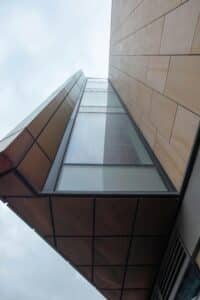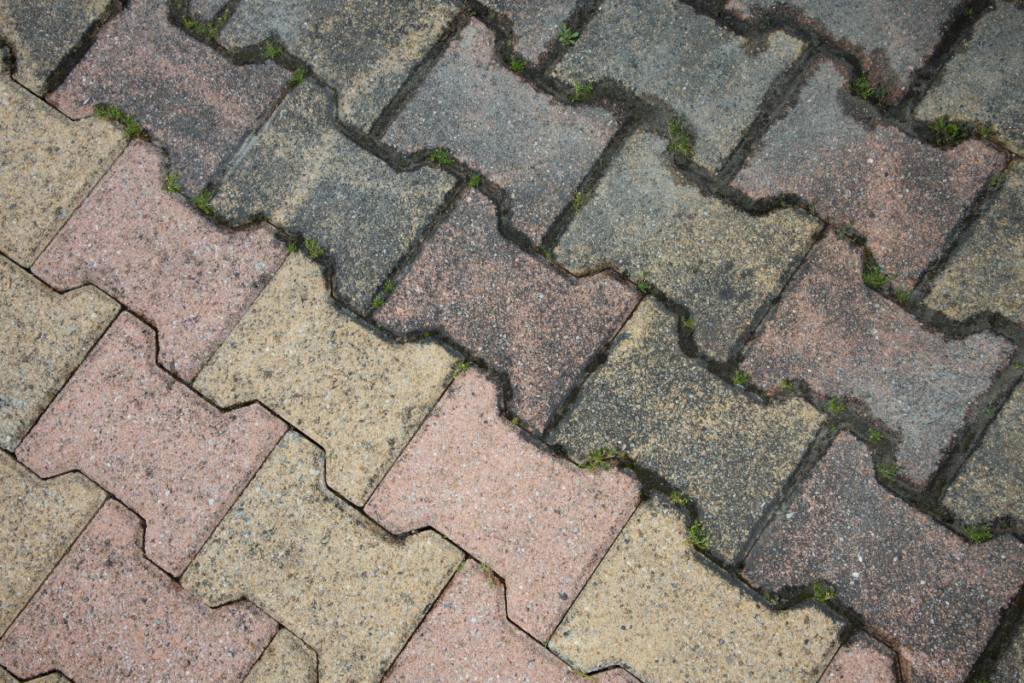Hard water stains are a common problem in many Australian homes. They leave unsightly marks on surfaces like glass, ceramic, and metal. The high mineral content in hard water causes these stains, making it crucial to remove them.
Using vinegar is a popular method for removing water stains. It’s a natural and non-toxic solution. A mix of vinegar and water can effectively remove these stains. This method is easy to use and cost-effective, making it a great choice.
Preventing water stains is as important as removing them. Regular use of a water stain remover can stop mineral deposits from building up. Cleaning with vinegar and water solution can remove stains and prevent new ones, making it a key part of your cleaning routine.
Key Takeaways
- Hard water stains are caused by the high mineral content in hard water
- Vinegar is a natural and effective hard water stain remover
- Regular cleaning with a solution of vinegar and water can help remove hard water stains
- Preventing hard water stains is just as important as removing them
- Using a hard water stain remover regularly can help prevent mineral deposits from building up
- Hard water stain removal is a necessity in many Australian homes
Understanding Hard Water Stains in Australian Homes
Hard water stains are common in many Australian homes. They happen in areas with lots of minerals in the water. These stains can appear on glass, ceramic, and metal surfaces. They are hard to remove.
To deal with water stains, knowing their causes is key. They are mainly caused by minerals like calcium and magnesium in the water. When water dries, these minerals leave behind hard deposits. Water spots also contribute to stains, as they leave mineral residue when they dry.
What Causes Hard Water Stains?
The main reason for water stains is the water’s mineral content. In Australia, many places have hard water. This means the water has lots of minerals like calcium and magnesium. These minerals cause scaling and staining, especially in places like kitchens and bathrooms.

Common Areas Affected by Hard Water Deposits
Hard water deposits can show up in many home areas. These include:
- Glass shower screens and doors
- Ceramic sinks and toilets
- Metal faucets and fixtures
To get rid of these stains, a gentle cleaner and a microfiber cloth work well. Regular cleaning helps stop mineral buildup. It also reduces the look of hard water stains.
Natural Solutions for Hard Water Stain Removal
Hard water stains can be a real problem. But, there are natural ways to get rid of them without harming surfaces. Vinegar is a great tool for this, mix equal parts of water and vinegar in a spray bottle, and spray it on the stain. This method works well.
Baking soda and lemon juice are also good for removing stains. They gently scrub without damaging surfaces. To use this method, mix 1 tablespoon of baking soda with 2 tablespoons of lemon juice. Make a paste and apply it with a toothbrush. Let it sit for 30 minutes before rinsing with warm water.
Vinegar-Based Cleaning Methods
- Mix equal parts water and white vinegar in a spray bottle
- Spray it onto the affected area and let it sit for 10-15 minutes
- Use a microfiber cloth to wipe away the stain and rinse with warm water
Baking Soda and Lemon Solutions
For tougher stains, try baking soda and lemon juice. Make a paste and apply it to the stain. Let it sit for 30 minutes before rinsing with warm water. This method is great for removing soap scum and mineral deposits.
Professional and Commercial Cleaning Solutions
For tough hard water stains, you might need a professional or commercial cleaner. These are made to get rid of mineral and hard water deposits. Always read the instructions and follow safety steps to avoid damage or harm.
A hard water stain remover can work wonders. These products are usually a scrub or cleaner that breaks down mineral deposits. Look for cleaners that focus on removing hard water deposits and spots.
- Type of surface: Different surfaces need different cleaners. Pick one that’s right for your surface.
- Level of stain: For tough stains, a stronger cleaner might be needed.
- Safety precautions: Always follow the instructions and take necessary safety precautions to avoid damaging surfaces or causing harm to yourself.
Using a commercial cleaner is just part of the solution. You also need a scrub to get rid of any leftover deposits. A good cleaner and scrub combo can remove hard water stains and stop them from coming back.

Essential Tools and Techniques for Tackling Hard Water Build-Up
To get rid of hard water stains, you need the right tools and methods. Start with a cloth, great for stopping stains on glass like shower walls. Clean regularly with a cloth and a soft cleaner to keep your home stain-free.
For removing stains, a scrubber or squeegee can help. For stubborn stains, magnesium-based products can dissolve mineral buildup. It’s key to pick the right cleaners, as some can attract more minerals and worsen the issue.
Keeping your home clean means using the right tools for each surface. For example, to stop stains on faucets and sinks, clean them often with a mild cleaner. This might seem like a lot of work, but it saves time and effort later. By using the right tools and methods, you can avoid hard water stains and keep your home looking great.
Recommended Cleaning Tools
- Microfiber cloths
- Scrubbers
- Squeegees
- Cleaning products containing magnesium
Step-by-Step Cleaning Process
- Regularly clean surfaces with a cloth and gentle cleaning product
- Use a scrubber or squeegee to remove tough stains
- Apply a product containing magnesium to break down mineral deposits
Conclusion
To keep your home stain-free, you need a few key steps. First, use natural cleaning solutions. Then, have the right tools and techniques. And don’t forget to maintain your surfaces regularly.
Wiping down surfaces like bathtubs and sinks often can stop stains. Also, using water softeners or filters can lower mineral levels. This makes it harder for stains to form.
By following these tips, you can avoid hard water stains at home. A bit of effort in maintenance can make your home stay clean and fresh for a long time.
Find out more from our experts and enjoy a clean home.
FAQ
What causes hard water stains?
Hard water stains come from the minerals in hard water. When water evaporates, these minerals leave behind chalky stains on surfaces and fixtures, such as glass shower doors or drinking glasses.
How can I remove hard water stains from my glass shower?
To remove hard water stains from glass shower doors, use items like undiluted vinegar or a baking soda paste. Apply the solution onto the glass, let the solution sit for 30 minutes, and scrub gently with a soft cloth or magic eraser. Rinse well with clean water for a spotless glass surface.
Are there any natural solutions for removing hard water stains?
Yes, natural solutions can effectively clean glass and other affected surfaces. However, don’t use vinegar on natural stone surfaces, as it’s acidic and may cause damage. Baking soda paste and hydrogen peroxide are safe cleaning alternatives for such surfaces.
How can I prevent hard water stains from forming in the first place?
The best way to prevent hard water stains from happening is by using a water softener to lower mineral levels in your water. Regularly wipe clean surfaces and fixtures with a cloth or squeegee after use. This helps prevent hard water buildup and keeps stains away.
What are the best tools to use when cleaning hard water stains?
For cleaning hard water stains, use the following tools: microfiber cloths, clean magic erasers, soft brushes, and scrubbing pads. These are formulated to dissolve grime and remove water stains without scratching surfaces. Avoid harsh materials and use a glass cleaner for a streak-free finish on glass surfaces.
Are there specific tips for tackling stubborn hard water stains?
For stubborn hard water stains, try a homemade cleaning paste made of parts baking soda and water. Apply it to the affected surfaces and let it sit before scrubbing. For tougher stains, use a product formulated to dissolve hard water buildup or deep clean with hydrogen peroxide. Always swish it around the area and wipe clean thoroughly for best results.




